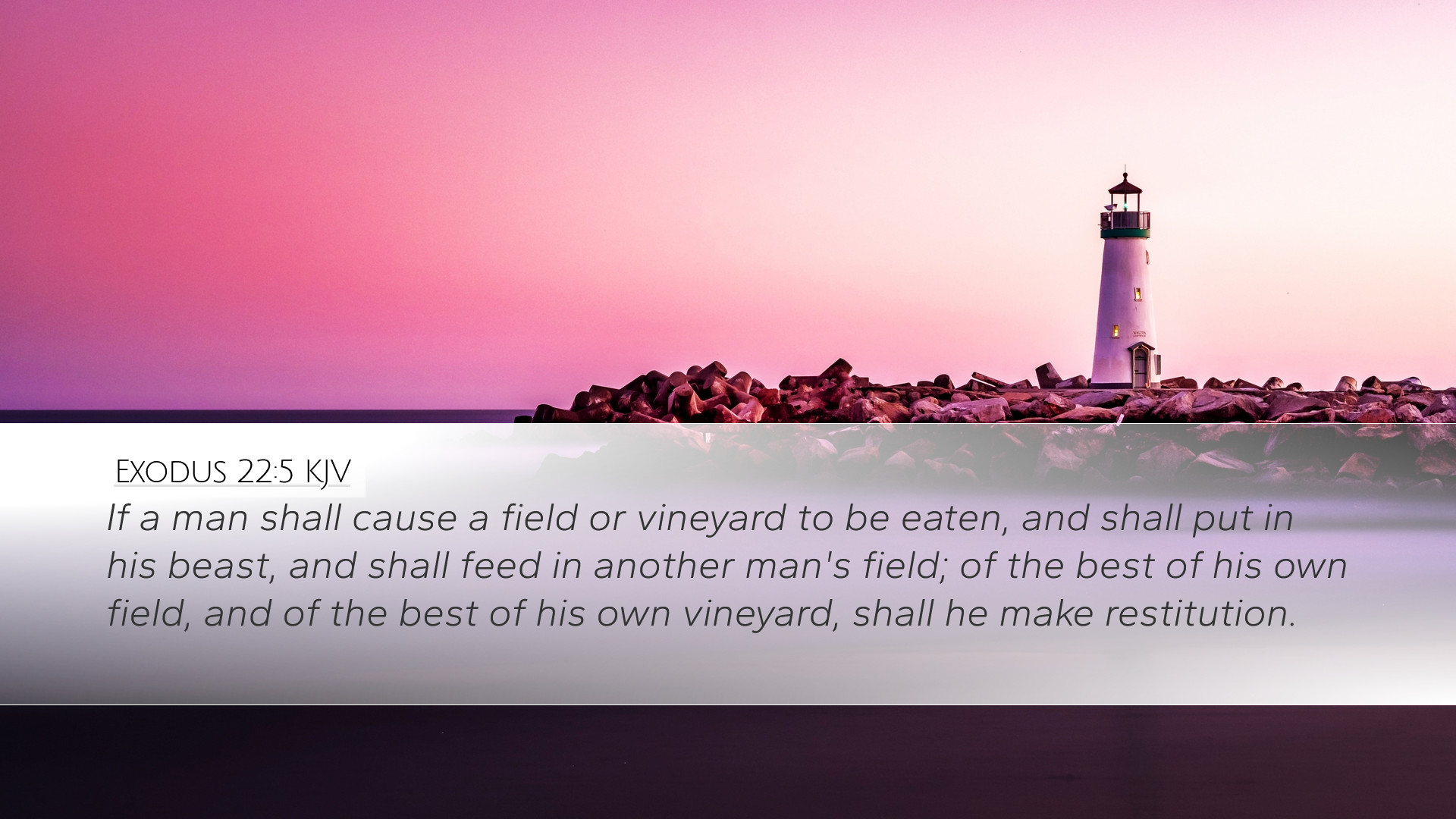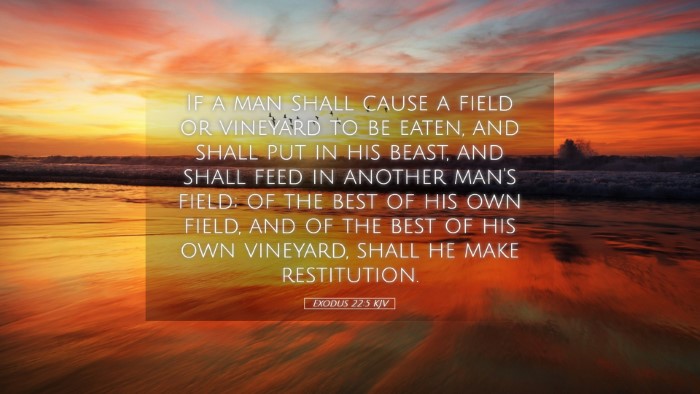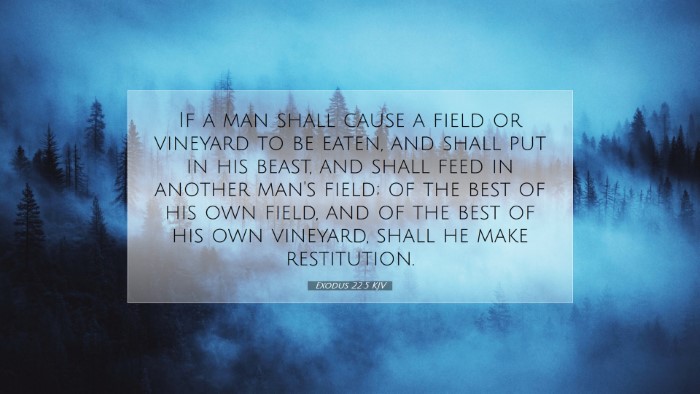Commentary on Exodus 22:5
Bible Verse: "If a man shall cause a field or vineyard to be eaten, and shall put in his beast, and shall feed in another man's field; of the best of his own field, and of the best of his own vineyard shall he make restitution."
Introduction
The verse Exodus 22:5 presents a case law from the Mosaic covenant concerning restitution for property damage. In the agrarian society of ancient Israel, land was of utmost importance, not just as a source of livelihood but also as a part of one’s identity and heritage. This commentary synthesizes insights from esteemed public domain theologians such as Matthew Henry, Albert Barnes, and Adam Clarke to delve into the implications and applications of this scripture.
Main Themes
- The Principle of Restitution: The foundational principle that damage to another's property necessitates compensation emphasizes justice and accountability.
- The Value of Property: The law highlights the significance of personal property and the moral obligation to respect it.
- Social Responsibility: The responsibilities one bears to their neighbors illustrate the communal aspect of living in a society.
The Principle of Restitution
Henry articulates that this law enjoins a strict accountability for one’s actions. When someone’s animals graze in another's field, it is not merely a matter of negligence but an act deserving restitution. This sets a standard for behavior reflecting personal integrity and societal ethics. Clarke notes that restitution should come from “the best of his own field,” implying that those at fault should compensate not only materially but also honorably.
The Value of Property
Barnes posits that the law speaks to the intrinsic value of property rights in Israelite society. Property was often linked to family lineage, and to damage another’s inheritance was to injure their legacy and livelihood. Henry further emphasizes that the Hebrew people were to treat their neighbor’s possessions as sacred, illustrating a profound respect for personal rights and social order.
Social Responsibility
This verse underscores the interconnectedness of the community. Clarke highlights the idea that individuals were not living in isolation but rather in a network that required mutual respect. The transgression of one could impact many, aligning with the biblical notion that one’s actions resonate within the community. This calls for a holistic understanding of righteousness, where individual behavior affects collective well-being.
Applications for Today
Interpretations of this verse extend beyond ancient agrarian practices into the realms of modern ethical and legal standards. For pastors and theologians, there's a valuable application in teaching congregants about responsibility and the importance of reconciling wrongs. Students of theology can examine the implications of this law in light of New Testament teachings on restitution and forgiveness.
Furthermore, as Barnes suggests, the church needs to uphold the principle of restitution in addressing social injustices today. These themes resonate well with modern movements that emphasize accountability and equity, encouraging a balanced approach to reparative justice.
Conclusion
Exodus 22:5 serves as an illustrative reminder of the values of justice, accountability, and social integrity. By understanding and applying these ancient laws, contemporary believers can foster a culture of respect and care within their communities. As Matthew Henry reflects, such laws promote a societal framework where rights are upheld, and relationships are maintained with an orientation towards peace and harmony.


